Background:
Magnetic materials omnipresent in our daily life, in applications ranging from loudspeakers in mobile phones to data storage in computers. Permanent magnets facilitate the inter-conversion between electricity and motion in electromotors and wind turbines. Magnetism is truly a quantum mechanical phenomenon and the properties are critically dependent on structure and size:
Small crystallites < 10 nm are superparamagnetic - constant change of magnetic orientation.
Sizes between 10-250 nm are single domain - all magnetic moments point in the same direction.
Larger crystallites > 250 nm are typically multi-domain - with differently aligned magnetic moments.
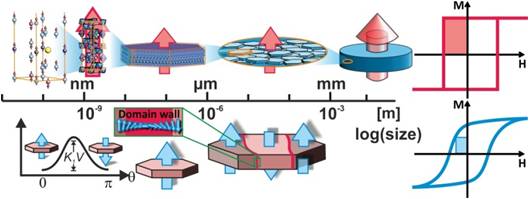
Preparation of magnetic compounds through different synthesis techniques, followed by structural characterization using X-ray and neutron scattering. Physical properties are characterized by electron microscopy, atomic force microscopy, and magnetization measurements of hysteresis curves.
Below are four examples of potential bachelor/master project that could be done in the group.
| Spinel structure with general composition [A]tet{B}2,octO4, where A and B are divalent and trivalent transition metals. The structure is ferrimagnetic, where the magnetic moment on the A sites are oppositely aligned to the magnetic moment of the B sites. Introducing none/weakly magnetic ions on the A sites can significantly boost the saturation magnetization. | 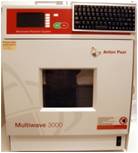 |
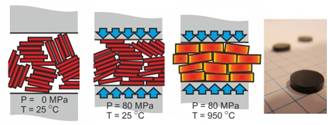 | Currently we are investigating a number of rare-earth free permanent magnets e.g. SrFe12O19, large scale synthesis is important if this material is to be used commercially. Apart from the synthesis the task will also be to compact nanopowders into dense magnets. |
| Following chemical processes is very important for understanding the synthesis mechanism. The project is related to developing a setup and performing experiments to follow growth and reduction processes in situ. Our in house diffraction equipment will be used together with experimental setups at international facilities | 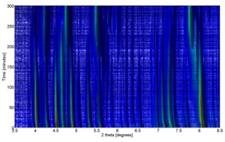 |
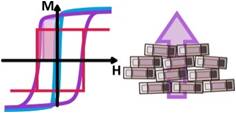 | Mixing of hard and soft magnetic materials allows enhancing the magnetic properties. The hard magnetic phase magnetizes the high saturation soft magnetic phase, which results in a magnetic material with enhanced energy product. |
Further examples of project can be found in the group member list, where titles of projects are given.